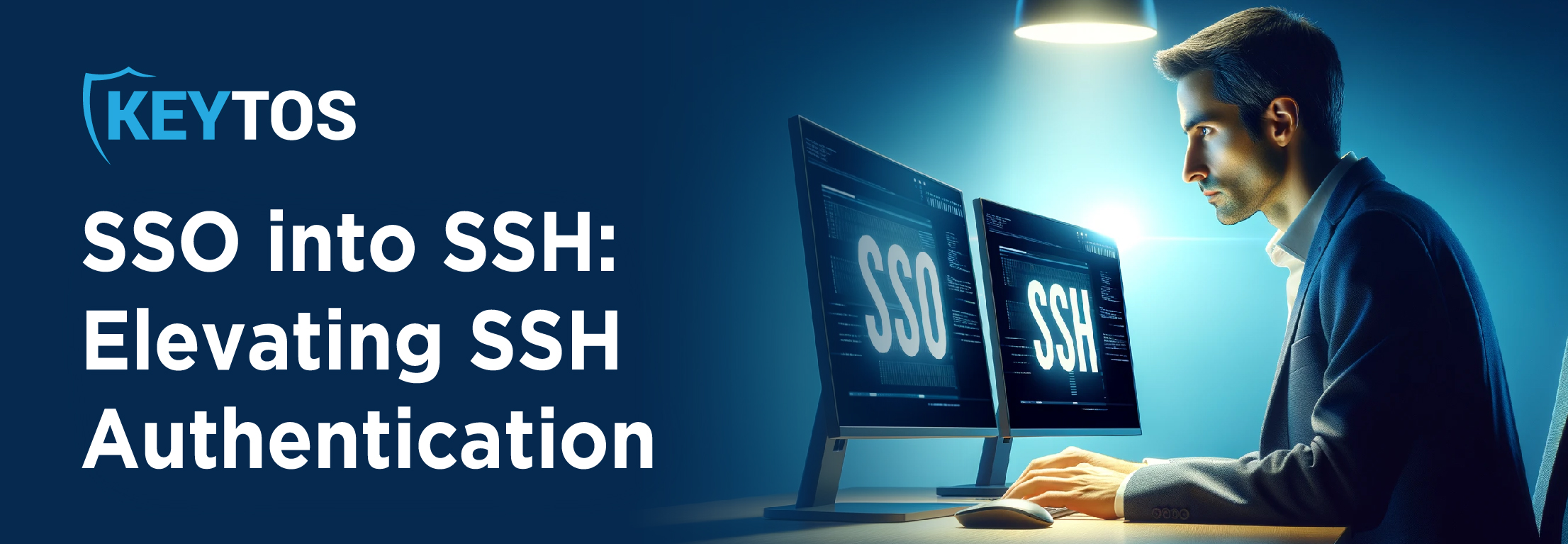
How Do I SSO into SSH?
Enabling SSO for SSH with Entra ID
Securing remote access to servers and systems has never been more critical for organizations across the globe. Security Engineers need to be on the constant lookout for new ways and means to secure the way they’re authenticating to avoid potential threats and breaches. Authenticating via SSH is no different. The Secure Shell (SSH) protocol has long been the cornerstone for providing encrypted, command-line access to remote machines. However, as we continue to work and do business in this modern, digital-centric world, the “old school” methods of SSH authentication, primarily through keys and certificates, reveal their limitations and potential vulnerabilities. This brings us to an intriguing proposition: what if we could simplify and secure SSH authentication with Single Sign-On (SSO)? In this post, we’ll do a quick exploration of SSH and how we can leverage your existing credentials to authentication.
Understanding SSH and Its Shortcomings
SSH is a ubiquitous tool for administrators and developers, allowing secure access to remote servers. It uses cryptographic keys to authenticate users, offering a more secure alternative to password-based logins. However, this method is not without its challenges:
Key Management: Managing SSH keys can be cumbersome, especially in large organizations with numerous servers and users. Keys need to be regularly created, distributed, revoked, and audited. This is a process that often manual and prone to human error. While SSH Keys might sound like a secure option for SSH, an average server has 50-200 keys and 90% of them are not used. This opens the door for attackers to find one of those keys and be able to access the endpoints.
Access Control: Traditional SSH does not easily integrate with central identity management systems, making it difficult to enforce access policies and ensure only the right people have access to the right resources.
Audit Trails: Tracking who accessed what and when can be challenging, especially if keys are shared among users or if proper logging mechanisms are not in place. In our opinion, this is one of the most glaring shortcomings involved with traditional SSH Authentication. It’s virtually common practice, even amongst the most seasoned and buttoned-up Engineers to share keys, put them in OneNote, etc. Not exactly security best practices, but still happening in 2024.
SSO for SSH: A Modern Solution
As organizations continue to digitize and operate in increasingly cloud-centric environments, the importance of secure, manageable, and auditable authentication mechanisms cannot be overstated. We all know that breaches can lead to unauthorized access, data theft, and potentially catastrophic security incidents. While enhancing SSH authentication might not be the first thing that comes to mind when we talk about IAM and going passwordless, it certainly aligns with the broader need for robust security practices that safeguard against evolving threats.
This is where we begin to explore Single Sign-On (SSO) for SSH, a concept that could revolutionize how organizations manage remote access. Most everyone, including your marketing team, is familiar with the concept of SSO, but to be clear: SSO is a user authentication service that permits a user to use one set of login credentials (and password) to access multiple applications. Extending SSO into SSH for authentication offers several benefits:
Simplified User Experience: Users can access multiple servers without the need to manage distinct SSH keys for each, streamlining the login process and reducing the potential for key mismanagement.
Enhanced Security: Integrating SSH authentication with an SSO provider means leveraging the provider’s security features, such as multi-factor authentication (MFA), which significantly reduces the risk of unauthorized access.
Centralized Management: SSO for SSH allows for centralized management of user access and policies, making it easier to enforce security policies, conduct audits, and ensure compliance with regulations.
Scalability: As organizations grow, the ease of adding or revoking access through a central SSO platform can significantly reduce administrative overhead and improve security posture.
Implementing SSO for SSH: A Path Forward
While the transition to SSO for SSH certainly requires some initial research, setup, and configuration efforts, the long-term benefits in security, management, and user experience make it a compelling proposition for organizations of all sizes.
Introducing EZSSH! The Zero-Trust SSH for solution for all Entra ID customers looking for a more secure alternative to traditional SSH authentication. Manage, rotate, and remove SSH keys for all your users from all your hosts and eliminate the shortcomings of traditional SSH authentication. No more keys in Engineers’ desktops waiting to be stolen by bad actors!
As we look to the future, the integration of advanced authentication solutions like SSO into SSH represents a significant step forward in our collective effort to secure digital assets and ensure the integrity of our digital operations. Interested in learning more about EZSSH? Schedule some time to talk with an Identity Expert for a FREE Evaluation or a EZSSH Demo. In the meantime, check out your Docs and YouTube for more details on how to get started with EZSSH!


